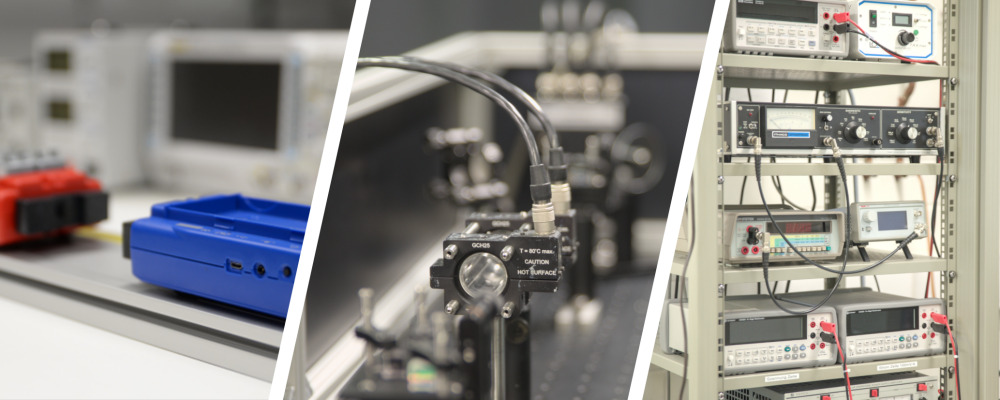Physics Laboratory Courses
Laboratory courses play an important role when studying physics. You will learn to design, perform, document and evaluate physical experiments. While doing so you will reinforce the topics you have learned during the lectures. As your studies progress, the experiments become increasingly more complex until they touch current research questions.
Beginners Lab Course (Bachelor of Science in Physics)
This lab course is a compulsory part of the bachelor program in physics and comprises the parts PPA1, PPA2 und PPB1 (PPBphys1, PPBbio1, PPBtec1, PPBup1 und PPBphi1). It is thus aimed at all physics students and has the following objectives:
- Dealing with measurement uncertainties
- Functionality and operation of measuring equipment
- Acquisition of measurement techniques
- Documentation and evaluation of a physical experiment
- Presentation and critical assessment of the results in form of a scientific report
- Deepening the understanding of physical correlations by means of practical realization of physical effects and their quantitative measurements
Physics laboratory A for teaching profession
Since the summer semester 2019, the Physics department offers a Physics laboratory especially tailored for students of the teaching profession at high school (Gymnasium), secondary school (Realschule) and professional schools (Berufsschule). It includes the parts FW-PPA1 and FW-PPA2 with the following learning objectives:
- Independent and free planning, set-up and execution of physics experiments.
- Correct measurement and safe handling of laboratory/measurement equipment, from balances to function generators and oscilloscopes to digital data acquisition using modern sensor technology and computers.
- Evaluation of the obtained measurement data by hand or with the help of the computer. Interpretation of the experimental results within the framework of the measurement uncertainty.
- Structured documentation of the experiment and the results as well as a clear presentation of measurement data/curves.
- A variety of experiments from the fields of mechanics, electronics and electrodynamics, optics and thermodynamics, in most cases with reference to school lessons.
Advanced physics laboratory in the bachelor's and master's programme in physics
The advanced physics laboratory includes the parts PPB2 for students of the bachelor's program in Physics and PPD for students of the master's programme in Physics. It extends the basic 'physics laboratory' and has the following learning objectives:
- Ability to work in a project-oriented manner
- Understanding of complex measurement setups and their operation
- Literature research and handling of primary literature
- Preparation of an experimental protocol
- Positioning of one's own work within a larger research context
Advanced physics laboratory for teaching profession
This laboratory course (FW-PPD) is intended for students of the master's program in teaching Physics at high schools, with Physics as first or second subject. It includes the following experiments:
- alpha/gamma spectroscopy
- Laser
- solar cells
Physics laboratorie for students of Biology, (Bio-)Chemistry and Chemistry Teaching
This laboratory course is intended for students of Biology, Chemistry, Biochemistry and Chemistry Teaching. The goal of the course is to get to know or further deepen basic physical concepts and at the same time to learn basic skills in conducting, documenting and evaluating scientific experiments.
- Introduction to error calculation and error estimation
- Learning basic practical metrology skills
- Functionality and operation of basic measuring instruments
- Acquaintance with and deepening of metrological processes and basic physical concepts
- Neat documentation and evaluation of scientific experiments
- Critical evaluation of own measurement results


